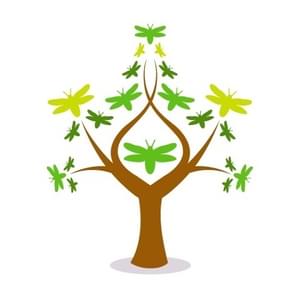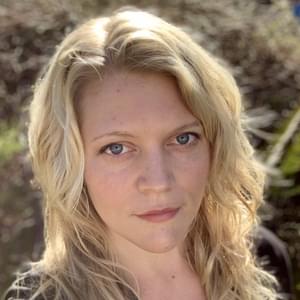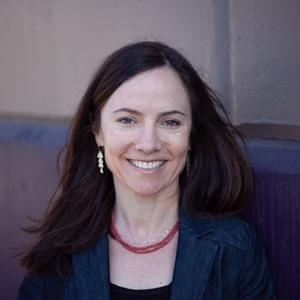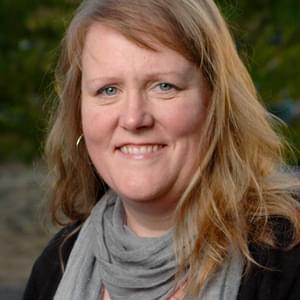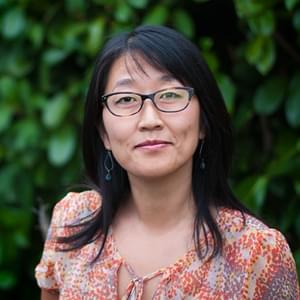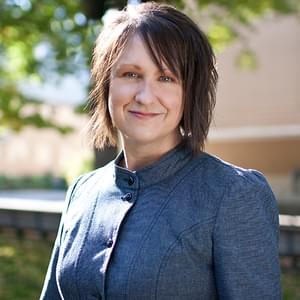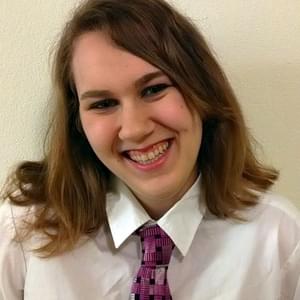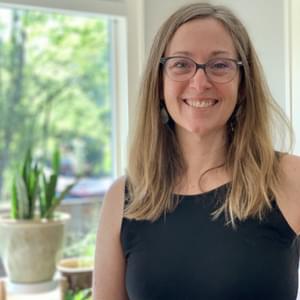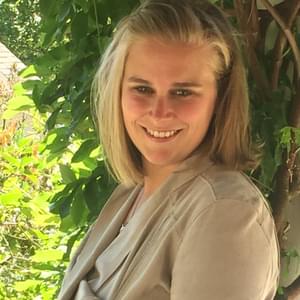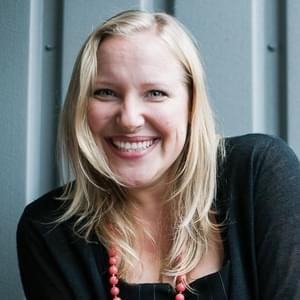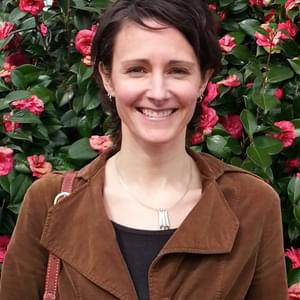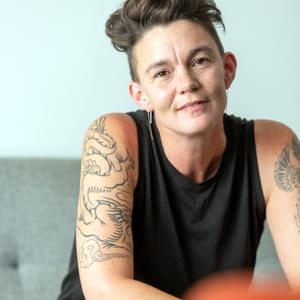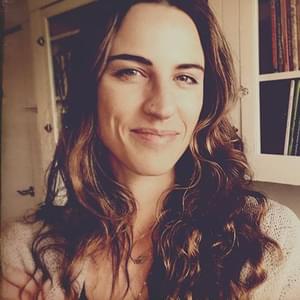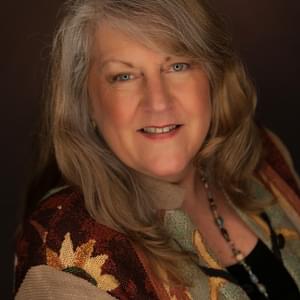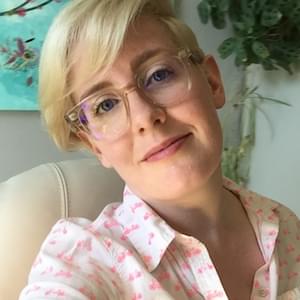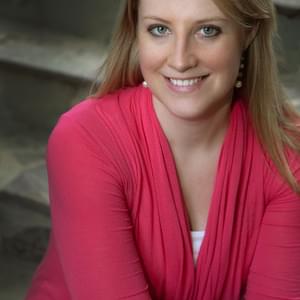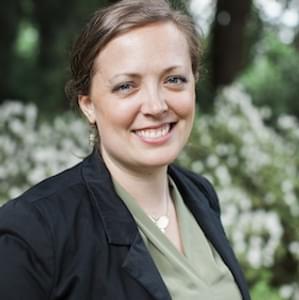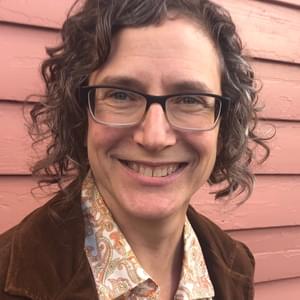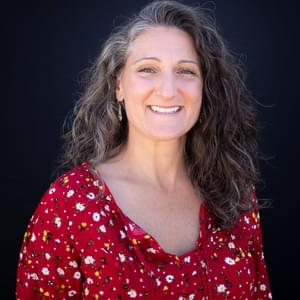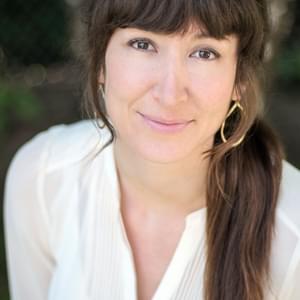Attachment Theory
Attachment theory was first developed by psychologist John Bowlby and focuses on the importance of early emotional bonds. Attachment theory investigates the nature of a person’s initial relationship with their primary caregiver (such as a parent) and how it influences their social and emotional development. Therapists using attachment theory can help a client to identify their individual attachment style. Attachment styles influences how individuals relate to each other in intimate relationships. Knowing your attachment style can be a powerful tool in understanding your strengths and weaknesses in a relationship.
Local experts in Attachment Theory
Palma Corral Sotelo (she /her)
Professional Counselor Associate
MA, NCC, PCA
My approach is relational, and I use attachment theory and human development as the underpinnings of my practice. We explore attachment styles without boxing you into one style. We use it only as a framework to understand your dominant strategies for autonomy, love, and connection. We will work to expand your abilities to hold both your needs for freedom, and to be in relationships without having to sacrifice one for the other.
View ProfileSarah Rosenberg (she/her)
Qualified Mental Health Professional
QMHP
I am training in Restoration Therapy under Justin Little, LMFT. Restoration Therapy is a therapeutic model that incorporates elements of attachment theory, emotional regulation and mindfulness to help clients recognize patterns that no longer serve them so they can make healthy, meaningful changes in their lives.
View ProfileDore Everett, LCSW (He/Him)
Licensed Clinical Social Worker
LCSW
Attachment work in therapy explores how dysfunctional attachment templates get represented in adult relationships by clients developing a personal, healthy, therapeutic relationship with their counselor. This relationship lays the groundwork to understand clients’ attachments to others through consistent and supportive communication.
View ProfileGemma Baumer (she/her)
Licensed Professional Counselor
Licensed Professional Counselor, M.A. in Counseling
As infants and children, we are completely dependent on our caregivers for survival. This need for attachment is innate within us, and forms an intense drive for love and belonging. When these needs are not easily met by caregivers, we make adaptations and accommodations. These show up as different patterns of attachment, which can stick with us into adulthood. Attachment work includes working with these patterns and exploring how we show up in relationship with ourselves and others.
View ProfileChelsea Kellogg (she/her/hers)
Marriage and Family Therapist Associate
M.A. Marriage, Couple, and Family Therapy
I incorporate attachment work into every session and it is a grounding theory of my style and approach to providing therapy. Therapy is most effective when a therapeutic relationship forms between the therapist and the client. Attachment theory guides me in how I build that relationship with my clients.
View ProfileSawyer Salameh
Licensed Professional Counselor
I work off attachment theory to help individuals and couples. This gives us an understanding how we interact with others and ourselves. Attachment can give us a starting point to understand and be intentional about patterns we experience in our lives.
View ProfileDani Dierking (She/Her/Hers)
Licensed Art Therapist
LAT, LPC, ATR
This has consistently been a driving theory in my work with adults. Your early childhood relationships impact how you relate to others today, and this is essential to be explored to improve your own resiliency.
View ProfileMichael Morales (he/his)
Licensed Marriage Family Therapist
LMFT
For many of us, our first years of life can influence how we interact with our chosen intimate partners and family members today. In counseling, we will explore how those early experiences have created a kind of relational framework that informs how you relate to yourself (think self-esteem issues) and others (think conflict resolution styles). We will also explore how you learned to resolve conflict and get your needs met (think safety, connection, or feeling empowered).
View ProfileGary Conachan III (he/him)
Professional Counselor Associate
MS, NCC
Attachment theory can be helpful in understanding both ourselves and selves-in-relationship: with friends, family, significant others, and our planet. The therapeutic relationship can be incredibly healing when it becomes a secure attachment and model for other relationships in our lives.
View ProfileJed Rendleman (he/him)
Marriage and Family Therapist Associate
MFT
Emotions are the currency of attachment. Emotions signal what’s important for us to notice, both for ourselves and in relationship. Attuning to your own emotions and the emotions of others promotes healing and connection. Easier said than done! I use techniques that help individuals and couples slow down, sit with feelings, and gain language to better understand/communicate them. Through this process I help clients foster more secure and satisfying relationships.
View ProfileBrooke Vaille (she/her)
Qualified Mental Health Professional
I am training in Restoration Therapy under the supervision of Justin Little, LMFT and Emily Brems, LMFT. Restoration Therapy is a model based in attachment, family therapy and mindfulness to help clients identify ways in which they get "stuck" and how to form more loving and trustworthy ways of being and communicating.
View ProfileJessica Feinsmith MA LPC (She/her/hers)
Licensed Professional Counselor
LPC
I believe that to heal we must feel, and that can be very scary to do alone or with a stranger. If you struggle with insecurity within yourself and relationships, connecting and building a trusting relationship with a therapist will take time. I utilize attachment and bonding interventions to holistically develop a trusted relationship between myself and the client to create a secure attachment.
View ProfileLauren Stines (she/they)
Marriage and Family Therapist Associate
MA MCFT
When we have a sense of security and belonging, we feel much more confident to explore the world. We can explore your attachment style, how it impacts how you relate to the world, and tap into your ability to change it and find a sense of security in your life and relationships.
View ProfileKendra Smith (she/her)
Professional Counselor Associate
MA
The way we were taught to relate to the primary people who provided us care when we were babies and children can shape how we act in relationships as adults. Establishing an understanding of how we connect with others in different contexts can help improve communication skills and expression of intention, which can improve the quality of relationships. I use individual family of origin history to help guide clients as they work on understanding their participation in relationships.
View ProfileFirefly Institute
Licensed Professional Counselor
Attachment theory is a theory of affect regulation and interpersonal relationships. Adult attachment anxiety is conceptualized as the fear of interpersonal rejection and abandonment, negative view of the self or feelings of increased anxiety or depression within relationships. Children can experience insecurity within their relationships and the behaviors we see are a result of that anxiety.
View ProfileEden Baron-Williams (she/her)
Marriage and Family Therapist Associate
MA, Marriage and Family Therapist Associate
Everyone has strategies to get their needs met. Often times these once essential strategies become patterns in our life that keep us from connecting and turning toward one another. Attachment and emotion-focused therapy invites us to understand and build compassion for our old patterns, while building new, healthier strategies for connection by identifying our emotions and giving voice to our needs.
View ProfileRachel Bagley, MS, NCC, LPC (she/her)
Licensed Professional Counselor
I have been trained in Experiential Attachment Psychotherapy. I have a passion for working with those wanting to find more security in their attachment style and in their relationships.
View ProfileBecca Flatt (She/Her)
Licensed Clinical Social Worker
MSW, LCSW
Attachment theory is a major part of how I conceptualize how I work with clients. I personally feel attachment plays such an important role in human experience because it's how we relate to the people around us. In therapy, the relationship between the therapist and the client is significant as trust and vulnerability are a major part of the client's process through treatment.
View ProfileGabriel Trees (He / Him)
Marriage and Family Therapist Associate
Masters of Arts, Marriage, Couple & Family Therapy
The attachment styles we develop early in life can have a profound impact on the way we relate to others in adulthood. Awareness and appreciation of this has been shown to lead to a greater understanding of ourselves and our partners. Let’s work towards creating better relationships with yourself and others.
View ProfileAshley Adler (she/her/hers)
Marriage and Family Therapist Associate
Master of Arts in Marriage, Couples, and Family Therapy
Attachment therapy is all about learning more about attachment-based patterns: how you show up in the world with your loved ones. These patterns that originated in our childhoods can have big impacts on our close relationships, and creating awareness brings more choice.
View ProfileLawrence VENASKA (He/Him)
Licensed Clinical Social Worker
LCSW
I have an overarching lens I view my work through which is attachment theory. Approximately 85% of the general US population has less than optimal development due to disruptions in the process of attunement we all need to be able to best regulate our own neurology and well being. Secure attachment can be achieved later in life as an adult even if not achieved in childhood.
View ProfileChristopher Creaturo (he/his)
Licensed Professional Counselor
MA, LPC
Mentalization Based Therapy derived from Attachment Theory. Person-Centered work to establish model of the secure relationship in therapy and allow for Attachment style repair.
View ProfileJessica Butler (She/her)
Marriage and Family Therapist Associate
M.A MFT
The goal of attachment theory is having kindness and compassion for yourself and others, with the acknowledgment that every interaction is a new chance to build connection or repair a hurt one. Part of how we do this is learning to communicate and advocate for our emotional needs to be met in a safe way.
View ProfileJessica Baker, M.A. LMFT (She/her)
Licensed Marriage Family Therapist
B.S. Health Psychology, M.A. Counseling, LMFT
I often find that a person's attachment style is one of the strongest factors in how they related to the world and other people. When working with children I always hold their early experiences in mind and take them into account when working toward goals. The issues that couples face can often be traced to their attachment pattern. My role is to help translate each person's needs to their partner.
View ProfileArrival Counseling annie dolle LCSW (she/her/hers)
Licensed Clinical Social Worker
LCSW
From family work (family crisis and adoptions) to the most vulnerable peoples (Emergency Department social work), I know that our attachment templates are primary to the way that we experience ourselves, our relationships, and our world. I keep this awareness close and utilize attachment theory in my work, always.
View ProfileJordan Curtis (He/him)
Professional Counselor Associate
MA, NCC
I believe in the power and primacy of relationship when it comes to psychotherapy. In therapy, we will explore your relationship to relationship and your attachment strategies. Whether you come to me for individual or couples work, we will work towards earned secure attachment for you. I want you to be able to enjoy the benefits of attachment security: health, purpose, emotional regulation, resiliency to trauma & grief, and rich & stable intimate relationships.
View ProfileJeri Finn
Qualified Mental Health Professional
QMHP
My graduate training to become a Clinical Mental Health Counselor has provided many opportunities to integrate the profound effects of our early attachments on our present lives.
View ProfileJustin Little (he/him/his)
Licensed Marriage Family Therapist
LMFT, INHC
The Restoration Model integrates Attachment Theory as a primary source for both case conceptualization and intervention. Learn more at www.restorationtherapytraining.com.
View ProfileAnnette Smith (she/her)
Professional Counselor Associate
MA, NCC, LPC Registered Associate
I have used Attachment Theory in the decades of work I have done with children and families. It is a lens through which I use to understand the needs of individuals and to explain the behaviors we see in both children and adults.
View ProfileNova (Stephenie) Knutson (she/her)
Professional Counselor Associate
MA, CHT
Attachment therapy uses principles of modern neuroscience and research about the ways humans form inner relationship models based on our early relationships. Unless they are interrupted, we carry these forward into current relationships, for better or for worse. I work with a client's present moment relational experiences to unravel old relationship patterns and foster new, more satisfying ones.
View ProfileNani Waddoups (she/her)
Licensed Professional Counselor
Attachment Theory is an extraordinarily helpful tool to understand how we developed our baseline relational styles. By studying our earliest emotional attachments to our primary caregiver(s), we can understand how we developed our sense of trust, security, and self-assuredness in relationship to others. Knowing your attachment style can become a navigational compass in relationships.
View ProfileBree Koenig (she/her/hers)
Marriage and Family Therapist Associate
MS Clinical Psychology, San Francisco State University
View ProfileAbe Hatch
Licensed Professional Counselor
LPC
An attachment-based approach to therapy looks at the connection between an infant's early attachment experiences with primary caregivers, usually with parents, and the infant's ability to develop normally and ultimately form healthy emotional and physical relationships as an adult.
View ProfileKathleen Thompson (she/her)
Licensed Professional Counselor
LPC, CRC
Attachment Theory is about discovering that how a person was cared for & related to in their early years still effects us. When we were young we learned if the world was safe or not. To make us feel safe we isolated or became people pleasers. These patterns continue on into adulthood & can be very disruptive to relationships. There are ways to feel emotionally safe so you can thrive.
View ProfileMargot Standeven (she/her/hers)
Licensed Marriage Family Therapist
Masters in Marriage, Couple, & Family Counseling
We each have a particular attachment style that determines how comfortable we are in proximity to others. Emotionally Focused Therapy (EFT) helps couples understand the attachment style of each partner and the dynamic that exists between them.
View ProfileMolz Wirtz-Wold (they/them)
Licensed Professional Counselor
MS, LMHC, LPC
Our relationships with the people who raised us gave us our foundation for understanding the world: are others safe or not? Can I trust people? As adults, we respond to those we care most about according to our experiences from birth to young childhood. Knowing our attachment styles can give us the ability to choose good partners, and have healthy relationships.
View ProfileSu Yim, MSW, LCSW (she/her)
Licensed Clinical Social Worker
Attachment theory is all about love and safety. How we experience that from an early age influences the coping skills we develop for all of our relationships, especially during times of conflict and struggle. I love that we can change how we feel about ourselves, our relationships and the world at large through the context of new, safe, reparative experiences.
View ProfileCourtney Burns
Licensed Clinical Social Worker
Exploring how attachment with caregivers early in our lives can be fertile ground for gaining new understanding to present day relationships.
View ProfileBethany Ingram (she/her)
Licensed Clinical Social Worker
LCSW
Our early development, especially our first caregivers, impact how we relate to ourselves and to others. I will help you understand how your childhood impacts your internal world and your external relationships, and I will help you build consciousness around subconscious patterns stemming from your childhood so that you can make necessary changes in the areas you have felt "stuck".
View ProfileEmily Smith (she/her)
Marriage and Family Therapist Associate
MA
Attachment theory underpins all of the work that I do, as I believe we are all wired for connection with one another. Attachment styles are characterized by different ways of interacting and behaving in relationships, and are influenced by both present-day relationships as well as our earliest relationships with our caregivers. I will work with you to explore and heal attachment wounds and move towards a greater sense of safety and connection in relationship with others.
View ProfilePatrick Bluett (he/him)
Licensed Professional Counselor
LPC, CST
What did your earliest relationships teach you about love and intimacy? What patterns of behavior did you adopt in order to protect those relationships? How are those patterns serving you now? Adult attachment theory provides a valuable framework for understanding the ways that you form and maintain relationships in order to meet core emotional needs. Through therapy, we can identify patterns that might not align with your relationship values and learn better ways of finding and keeping love.
View ProfileAllison Amo MA, LPC (she/her)
Licensed Professional Counselor
LPC
I strongly believe that our attachment experiences, from birth through adulthood, shape the way that we relate to ourselves and others. I will help you understand this lens through which you see the world, and open up possibilities for growth and healing, which ultimately leads to a more authentic and meaningful connections.
View ProfileFatema Rashid (she/her)
Professional Counselor Associate
MA, Professional Counselor Associate, R6840
I work with clients to help identify and heal attachment wounds. These wounds may have been caused by disruptions in early childhood relationships, past trauma, or ongoing difficulties in adult relationships. I believe in creating a compassionate, non-judgmental space where clients can feel safe and understood.
View ProfileJenna Washburn (she / her)
Licensed Professional Counselor
MA: Mental Health Counseling - Specialization in Addictions
I have researched attachment theory and utilize its theories in most of my therapy interventions, particularly on issues of family systems, relationships, trauma, and boundaries.
View ProfileVedalia Zellers (she/they)
Clinical Social Work Associate
MSW, CSWA
We can curiously and non-judgmentally explore how relationship patterns from the past (for instance with parents/caregivers in childhood) may have impacted your relationship patterns in adulthood. This can pave the way for more self-compassion and more fulfilling connections with others. It may be especially relevant for people who have had a difficult relationship with a parent/caregiver or who've experienced trauma (including intergenerational trauma, complex trauma, or religious trauma).
View ProfileProfessional Counselor Associate
Patterns of thought and ways of being in relationships with others are largely put in place prior to acquiring the ability to verbalize our experience. As such much of what we know and how we know it are implicit. Nonetheless these embedded patterns can effectively addressed by counseling in an atmosphere of empathic collaborative dialogue.
View ProfileLilyan Smith-Moore, LPC
Licensed Professional Counselor
We are creatures of love, and when we feel disconnected from others, we suffer. In therapy, I use attachment theory to help a person explore how their early family relationships (or lack thereof) shaped their ways of relating to others in adulthood. This type of therapy is especially useful for those who have been through childhood or family trauma.
View ProfileJulianna Vermeys
Licensed Professional Counselor
LPC, NCC
I believe our attachments to our first caregivers offer us a window into how we feel and function in our current relationships and life endeavors. Using narrative and discussion to understand the complex web of attachment-based emotions and experience in the world, I can help you feel empowered and in charge of your life choices and behaviors.
View ProfileEmily Radcliffe (She/Her)
Marriage and Family Therapist
Attachment theory has recently become more mainstream and a lot of folx are interested in how it applies to them or their partnership. I can help you explore your attachment style and how it manifests in your relationships both with others and yourself. I can also help you explore the roots of your attachment style in order to better understand how you got here. Learning about and naming attachment styles and wounds can be powerful and help foster secure attachment going forward.
View ProfileTina Lilly, MS LPC
Licensed Professional Counselor
I have researched and trained in various attachment-based theories related to parenting, adoption, couples and families.
View ProfileSophie Toolanen (she/her)
Licensed Professional Counselor
MA, LPC
Attachment and schema driven therapy were cornerstones of my graduate education program. I believe that the attachment, or lack there of, to our primary caregivers plays an integral part in shaping who we are and how confident and capable we feel. I have many years of experience working with individuals with Borderline Personality Disorder, which I see as a disorder rooted in attachment trauma.
View ProfileKorina Jochim
Licensed Marriage Family Therapist
LMFT
I utilize a technique and approach known as Mentalizing, which was developed in the UK to treat complex trauma, and is still largely unknown in the U.S. Mentalizing is an imaginative process in which we are able to understand ourselves, and how our minds interact and conceptualize the minds of others. Our ability to Mentalize well allows us to accurately understand the intentions of others, as well as how to better understand how we are viewed by others. It is essential for healthy relationships
View ProfileCarly Henderson (she/her)
Licensed Professional Counselor
LPC, LMHC, NCC
I have and continue to participate in graduate education and professional development that focuses on attachment and attachment related trauma. I continue to participate in graduate classes through Portland State University's Trauma Informed Services and Interpersonal Neurobiology (IPNB) programs and participate in an advanced study group focusing on trauma, attachment, and IPNB.
View ProfileJessi Huffman (she/her)
Licensed Professional Counselor
LPC
I have had training in Interpersonal Neurobiology and Attachment Theory, or how the important relationships in our lives have had a physiological impact on our wiring and functioning. In therapy we can explore this relationally, ie. what comes up between us during sessions in the immediate moment, and we can also understand from a historical lens how the relationships in your life have shaped who you are, your sense of safety with others and the world, and what to do about all of it.
View ProfileCaitlin Truitt (she/her/hers)
Clinical Social Work Associate
MSW, LSWAIC, MHCA
For both couples and individuals, attachment theory can help uncover the root of relationship patterns. I love it because it can help us better understand our reactions and needs with compassion and gentleness, rather than shaming ourselves with harsh criticisms.
View ProfileJackie Turner (she, her)
Marriage and Family Therapist Associate
MA, Marriage & Family Therapist Associate
Attachment theory is my main theoretical orientation and informs most of the work I do. I believe that we are all wired for connection and need it for survival - as a result, our relationships are essential, yet we often have relational wounds that can make it hard for us to connect, all the way down to the nervous system level. As such, it is central to our well-being to be able to explore and understand our patterns and learn to attend to those deep needs.
View ProfileChantal miniet (She/Her)
Professional Counselor Associate
I help clients understand how early relationships shape their current patterns. Through exploration and validation, we address attachment wounds and develop healthier coping strategies. By fostering secure relationships and promoting self-awareness, clients experience healing and growth.
View ProfileMarc•francis Otto (they/them)
Licensed Professional Counselor
MA, LPC, RSMT/E
Our earliest relationships form the templates for how we interact and what we expect from others. These patterns live in our body and in the ways that we engage with (or avoid) others. Over the past 10 years, I have learned how to recognize and work with individual attachment styles and relationship patterns through my in-depth studies with Bonnie Badenoch, PhD, LMFT.
View ProfileSonia Holdaway (she/her)
Licensed Professional Counselor
MS
Attachment theory is at the heart of my work with both couples and individuals. If you are wondering why you seem to have the same problems in relationships over and over, or you feel clingy or suffocated in relationships, I can help. My clients often say they find our work helpful for looking at the impact of attachment patterns on present and past relationships.
View ProfileKate Madden (she/they)
Licensed Professional Counselor
MA, NCC
Our earliest experiences with caregivers shape what we expect from the world, how we enter into relationships, and how we make sense of ourselves. By exploring and processing early attachment experiences—and forming reparative, adult attachment experiences—we can facilitate healing and growth.
View ProfileChantal miniet (She/Her)
Professional Counselor Associate
I help clients understand how early relationships shape their current patterns. Through exploration and validation, we address attachment wounds and develop healthier coping strategies. By fostering secure relationships and promoting self-awareness, clients experience healing and growth.
View ProfileSarah King (she/her)
Licensed Clinical Social Worker
CCSOT
I view my practice through an attachment theory lens, as I recognize the powerful impact our childhood attachments have on our current relationships and behaviors. Therefore, I use the relationship between myself and the client as the bases for creating a safe place to explore healing childhood wounds and generalizing that healing to other important relationships in our lives.
View ProfileMaria Bonacci (she/her)
Licensed Professional Counselor
LPC
"Attachment" is a way to explore how and in what contexts we feel safe. I have studied Interpersonal Neurobiology which is deeply rooted in attachment theory and the interpersonal emotional information we internalize and which as a result impacts our day to day interactions.
View ProfileMajken Elek, MA
Licensed Professional Counselor
Our early childhood attachments with our caregivers creates a template for how we respond and relate with ourselves, and our relationships. They inform our beliefs about the world and from this, we internalize relational patterns. We can cultivate understanding of why we attached the way we did and how we can utilize neuro-plasticity to create new templates to get our emotional needs met.
View ProfileShannon Rice (she/her)
Licensed Professional Counselor
MA, SEP
I am trained in PACT therapy which is deeply rooted in attachment theory. Learning about your attachment style and/or your partner(s) attachment style can be deeply informative, healing, and increase compassion.
View ProfileStacy Sheffler (she/her)
Licensed Professional Counselor
How we attached to our significant caregivers in early childhood leads us to desire, gravitate and repel others. Understanding these styles can aid in seeking healthier relationships.
View ProfileBeth Bloom (she/her)
Clinical Psychologist
Psy.D.
I have advanced training and experience working with attachment theory, including a study group with Beatrice Beebe, a leading researcher in this area.
View ProfileCamillia de la Garza Thompson (she/her)
Licensed Professional Counselor
MA, LPC, CMA
Attachment theory is also a modality. Not just a theory. I use a relational approach. To me, that's applied psychology. It's about heart. Everything is in motion. We will explore it in a safe, stable, conversational way.
View ProfileAdam Benjamin
Licensed Clinical Social Worker
A thorough grasp of attachment theory is foundational to understand most forms of dysregulation or mental illness. I consider attachment patterns as I seek to tune in to each client's suffering. I also have training in attachment-based therapeutic techniques.
View ProfileMelissa Ellsworth
Clinical Psychologist
Ph.D.
This therapy helps us understand and improve your attachment style that is formed in early relationships. It helps resolve relationship difficulties by fostering secure connections, enhancing emotional understanding, and communication skills. This therapy addresses trust issues, dependency, and intimacy challenges, leading to healthier, more fulfilling relationships. By exploring past patterns, you learn to form stronger, more secure emotional bonds in your current and future relationships.
View ProfileBrittany Kleinschnitz (they/them)
Clinical Social Work Associate
CSWA, PPSC
14+ years of personal attachment work at 6+ years of self study and workshops.
View ProfileMarley Dagner (she/her)
Licensed Professional Counselor
MA
The foundation in which we relate and develop bonds with others was taught to us in our earliest experiences. Working to understand the way we learned to engage in relationships leads to the opportunity to teach ourselves new ways of connecting with others. Offering freeing & mutually servings methods of connecting with others and yourself.
View ProfileKarel Chan
Licensed Professional Counselor
MS, LPC
Our adult relationships reflect our earliest relationships in life with our families of origin. Whatever the quality of those relationships, they taught us powerful messages about love, how it's given, and sometimes what we need to do in order to receive it. If love was absent, inconsistent, or highly conditional, then we move through life feeling a persistent lack of belonging, no matter who we are with. Understanding that these messages are not true can open us to freely give and receive love.
View ProfileYouth Contact
Professional Counselor
We work with youth who have had disruptions in their attachments with their caregivers and we work on re-establishing safety in their relationship with the caregiver.
View ProfileSarah Lange (She/Her)
Marriage and Family Therapist Associate
MFT Associate
Exploring what attachment was like in early childhood can help us understand what is going on in adult relationships.
View ProfileHeather Lokteff
Licensed Professional Counselor
Our early childhood relationships and experiences provide a blueprint for how we see ourselves, our relationships, and the world around us. Is this world safe? Am I alone or can I rely on others? Can I find trustworthy people? It can be extremely helpful to know what your attachment style has been in your life and also hold onto hope that you can move into a place of security with others.
View ProfileChristopher Marquardt (he/his/they/them)
Licensed Professional Counselor
LPC
I tend to build emotional connections to my clients- hoping to mitigate the pain caused by other suboptimal relationships they've had in the past. For other clients this looks like establishing a connection to someone who knows them very well and represents a reflection of their better self which, for one reason or the other, the client is unable to see.
View ProfileJessica Besner (she/they)
Licensed Professional Counselor
LPC, M.S.
Currently completing a Somatic Attachment Therapy certificate, completed coursework in Attachment & Complex Trauma.
View ProfileEmily Berry (she/they)
Licensed Professional Counselor
LPC
I believe deeply in the power of human connection and how it shapes us. Our earliest significant relationships heavily influence how we learn to see ourselves and relate to others and the world. These dynamics evolve over our adult lives. It can be tremendously helpful to look at these histories and patterns to learn about ourselves and make change from a deeper place of self-understanding.
View ProfileAaron Kelsay (he / him)
Licensed Professional Counselor
LPC, CADC I
The journey to healing is so much about relationship, and the "theory of attachment" is a wonderful way to put into words how we relate to everything in our world. I use the language of attachment alongside the other modalities in order for couples, individuals, groups to understand how and why they relate they way they do. This awareness allows us to adjust how we relate, and in doing so, move towards healing and health.
View ProfileKatharyn Waterfield, MA, LPC
Licensed Professional Counselor
OR Lic #C4802
Through the study of Interpersonal Neurobiology (IPNB) we have a great new understanding of the restorability of wholeness where emotional damage was done from unresponsive, unconscious, or even violent caretakers. Our work is in the relationship, as the 'interpersonal' actually enables a new neurologic wiring as well as new realizations of worthiness and value.
View ProfileSarah Small
Professional Counselor Associate
MA
An individual's attachment patterns with early significant persons in their life contributes to present and future connections with others. Identifying and understanding these patterns can help individuals develop more freeing ways of engaging with others and themselves now and in the future.
View ProfileAmanda Ball (she/her)
Licensed Professional Counselor
MS, LPC
Attachment theory helps us untangle the complex web of early learning that can make engaging in fulfilling adult relationships difficult and painful. I hold special training in a method called Experiential Attachment, which naturally elicits the infant/caregiver attachment system, allowing for examination of early attachment wounding and engagement in a process of repair.
View ProfileChristine Bethel (she/her)
Licensed Marriage Family Therapist
LMFT
As with systems theory, I find attachment theory to be an extremely helpful model in supporting clients. We are indelibly marked by our early bonds with caregivers and typically, what we learned in those relationships sets our beliefs about the world and determines the patterns we follow in future relationships. Not that we can't change, attachment theory just helps us understand why.
View ProfileRose Novak (she/her)
Professional Counselor Associate
M.A. Professional Mental Health Counseling
Early childhood and relational experiences are at the heart of many mental health related diagnoses and symptoms. We will likely explore how you developed into the person you are today and if you have any behaviors or concerns that you would like to evolve from. We will practice relational ways of being together, so that you may start to experience relationships differently outside of therapy.
View ProfileFox Convey (they, she)
Professional Counselor
Masters of Arts in Clincial Psychology (MA), Registered Associate
View ProfileMiranda Bayard-Clark, LPC (she/her)
Licensed Professional Counselor
Humans learn attachment from their primary caregivers. This relationship we have with our parents directly reflects our relationships with our friends, other family members, co-workers, and intimate partners. I work with clients to identify their attachment, and how it can help or hinder their personal success in creating and maintaining relationships.
View ProfileSakura Counseling (She/He/They)
Licensed Professional Counselor
LPC
Having training in attachment theory serves as a solid foundation for understanding client’s development of maladaptive coping strategies and how this relates to the client’s emotional difficulties. Using this therapy, we can help clients increase self-compassion and kindness because clients who have attachment disorders/wounds often develop a negative self-view of themselves and others.
View ProfileQuinn Francis (they/them)
Professional Counselor Associate
MA, NCC
Attachment theory is a popular underpinning of many therapeutic theories and interventions - you may have even taken a quiz to find out what your attachment style is! I help clients to develop a secure attachment with themselves (aka self-esteem, knowing & liking yourself) which helps improve your relationships and your day to day experience of feeling satisfied with your life.
View ProfileSankofa Counseling
Licensed Professional Counselor
I have attended extensive training on attachment as it pertains to brain development and the development of both risk and resilience factors. I hold an advanced certificate in Adoptive and Foster Family Therapy, where major coursework was around attachment processes within various family settings.
View ProfileMira Shah, LPC, ATR, LAT (she/her)
Art Therapist
LPC, LAT, ATR
Attachment theory is all about love and safety. How we experience that from an early age influences the coping skills we develop for all of our relationships, especially during times of conflict and struggle. I love that we can change how we feel about ourselves, our relationships and the world at large through the context of new, safe, reparative experiences.
View ProfilePearl Waldorf
Licensed Professional Counselor
It is during our early development that our ways of understanding relationship are being mapped into our brains. Attachment therapy can awaken these networks for reconfiguration. Deep change is possible in how we experience ourselves, in our ways of connecting with others and in our capacity to act effectively in the world.
View Profile"Paisley" Jen Burrell (she/her)
Licensed Marriage Family Therapist
LPC, LMFT
Attachment theory in counseling explores how early relationships shape current emotional well-being and interpersonal dynamics. In sessions, we examine your attachment history to identify patterns impacting your relationships. The goal is to foster healthier attachments, improve communication, and create a secure emotional foundation for more satisfying connections. Attachment-informed counseling helps navigate human connections, fostering personal growth and fulfilling relationships.
View ProfileSasha Rosenfels, MA, LMFT (She/her)
Licensed Marriage Family Therapist
LMFT
Learning to understand our early attachment experiences and how they shaped our current relationship dynamics.
View ProfileEmma Bridges (she/her)
Licensed Clinical Social Worker
LCSW
I believe that attachment is the core of how we relate to others.
View ProfileGina DeLeo (she/her)
Marriage and Family Therapist Associate
M.A.
I work collaboratively with partners, families and individuals who want to foster connection and form deeper, more loving relationships. I also work with parents to identify their struggles with parenting (be it a one time issue or an on going parenting struggle) and develop a plan to support the entire family system.
View ProfileCameron Earle (he/him)
Student Counselor
BS, MS (Graduating 9/2024)
When our self-concept is first developing, it is a reflection of how we think our primary attachment figures view us. That is a powerful idea that massively impacts our developing self-worth, and the way we interact with others, especially significant others. No matter if you have an anxious, avoidant, or disorganized attachment, attachment theory provides roadmaps to developing a secure attachment at any time in your life.
View Profile


